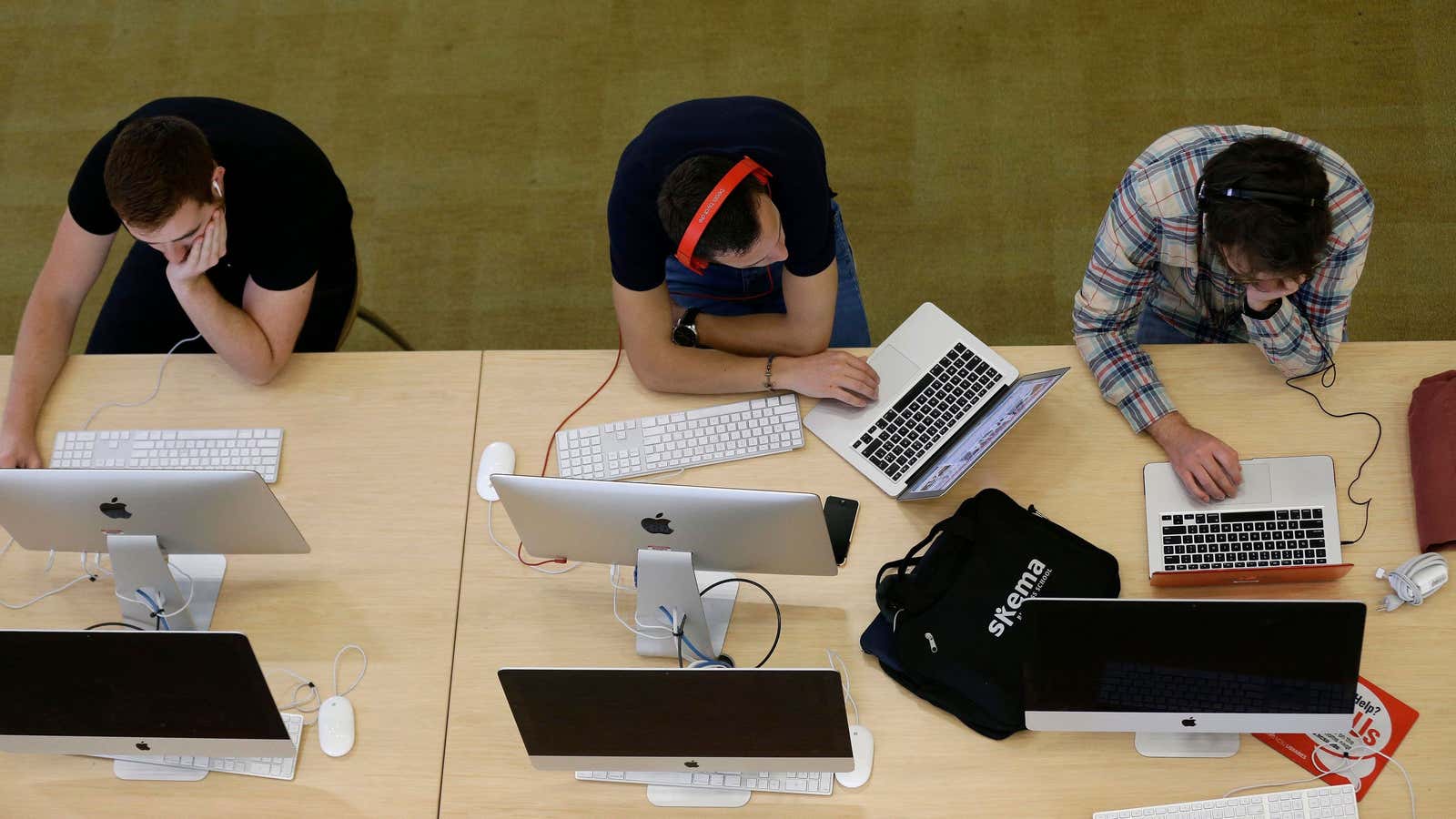Donald Trump has not been a friend of the H-1B visa. The employment visa for educated workers in sought-after occupations was a favorite target for Trump during the Republican debates in the 2016 presidential primaries. After ascending to the White House, Trump’s “Buy American and Hire American” executive order put the visa under even more scrutiny.
It’s starting to show in the numbers. Since ascending to the White House, the number of H1-B visas accepted has fallen, while those challenged by the government has tripled, according to data (pdf) from the US Citizenship and Immigration Services (USCIS).
The acceptance rate for H-1B applications fell from 96% in fiscal year 2015 (Oct. 2014-Sept. 2015) to 75% in the first three months of fiscal year 2019 (Oct.-Dec. 2018). Meanwhile, the number of applications for which the government demanded supplementary evidence grew from about 20% to 60% in the same time periods.
According to the Silicon Valley Business Journal, the most common requests for supplementary evidence by the USCIS were whether a job qualified as a “specialty occupation”; if an applicant’s job would last the full employment period as stated in their application; and the nature of applicant’s relationship with the company.
Surprisingly, given that the Trump administration has made Silicon Valley a favorite target, tech giants are sailing through the H1-B process. Apple, Microsoft, Google, and Facebook received approval for at least 98% or more of their applications (pdf) for fiscal year 2018 (Oct 2017-Sept 2018). Other industries have struggled. The consulting firm Capgemini, saw just 20% of its 1,334 new H-1B applications approved. Another major consulting firm, Deloitte, performed only moderately better (50%).
Demand is still high. Each year, applications for H-1B visas surpass Congress’ annual quota of 85,000 by threefold or more. With Trump’s rhetoric around H-1Bs softening in 2019 (in a January tweet, he said “H1-B holders in the US can rest assured that changes are soon coming which will bring both simplicity and certainty to your stay, including a potential path to citizenship”), that’s unlikely to change.
